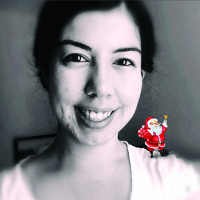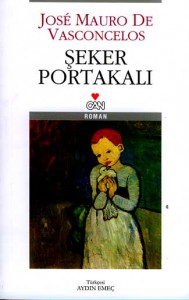
BY MELEK CANSU PETEK (ELIT/II)
petek@ug.bilkent.edu.tr
Please be honest with me for a moment! I can’t be the only one who has a hard time with the question “What’s your favorite book?”, can I? My brain simply refuses to give an answer, and I need more input to come up with one, so I end up questioning the questioner — I know it’s a trivial matter for many, but I take my books very seriously. Even then, there are books that I’ve never stopped loving, books that make me emotional whenever I read them, even if it’s for the 10th time, and in this column I’d like to tell you more about one of those precious little gems: “My Sweet Orange Tree” by José Mauro de Vasconcelos.
I still vividly remember the first time I encountered the book. It was the summer of fifth grade. I was bored at home and decided to embark upon a “journey” to my aunt’s house. My journey ended on the couch right by their library. After spending a good deal of time finding a book for my reading pleasure, I made up my mind, picked “My Sweet Orange Tree” and buried my head in it. I finished it in one sitting, with tears in my eyes, and fell in love with the book. I sat there in silence for a while, afraid of being caught with teary eyes. That’s how I met precocious Zeze and his beautiful heart.
Recently, I visited my aunt again and she brought up the topic: “Do you remember that book you kept reading on and on?” And then there I was, after 12 years, sitting by their library, holding the same book. This time, I couldn’t read it in one sitting, though, so I read the last 30-40 pages during a bus ride. Here’s a warning for you: do NOT read this book in public. I, a 23-year-old girl, ended up sobbing and crying on the bus, trying to hide my tears again.
The story line is quite simple if you think about it. Zeze is a 5-year-old brilliant yet prankish kid, with many brothers and sisters, from a very poor family. After his family moves to a different house, he finds himself a friend in the backyard, a little tree of sweet oranges. In the midst of all his naughty pranks, Zeze still seeks the comfort of a loving, caring friend, as he doesn’t experience much parental love. In the end, he meets Manuel Valaderes, whom he calls Portuga, and Portuga becomes his best friend, father and confidant. Portuga sees right into Zeze’s heart and is amazed by the thoughts and imagination of this little boy.
 I’ll leave the plot summary here and won’t tell you how it ends, but isn’t it simply amazing? A novel that is classified as a “children’s book” is packed with everything that makes us human. That novel made me cry like a kid just when I thought I’d finally started to become an adult. It reminded me of how it is being a kid, freely revealing your emotions without being inhibited by your surroundings. Many times, it has shaken me to my very roots and struck me with the harsh realities of life, such as poverty and death, and made me question how easily I take everything for granted. I have compared my reactions to a 5-year-old’s and felt ashamed of myself so many times. It’s so easy for us to be caught up in our fancy lives, yet still find a lot to complain about. With the sole intention of climbing up the ladder of the social hierarchy, we often forget to stop, breathe and take a look around — not just at nature, but also at humanity. We might be blessed with being a part of the Bilkent community, but I sincerely hope, both for you and for me, that blessings won’t turn into forgetfulness.
I’ll leave the plot summary here and won’t tell you how it ends, but isn’t it simply amazing? A novel that is classified as a “children’s book” is packed with everything that makes us human. That novel made me cry like a kid just when I thought I’d finally started to become an adult. It reminded me of how it is being a kid, freely revealing your emotions without being inhibited by your surroundings. Many times, it has shaken me to my very roots and struck me with the harsh realities of life, such as poverty and death, and made me question how easily I take everything for granted. I have compared my reactions to a 5-year-old’s and felt ashamed of myself so many times. It’s so easy for us to be caught up in our fancy lives, yet still find a lot to complain about. With the sole intention of climbing up the ladder of the social hierarchy, we often forget to stop, breathe and take a look around — not just at nature, but also at humanity. We might be blessed with being a part of the Bilkent community, but I sincerely hope, both for you and for me, that blessings won’t turn into forgetfulness.
I don’t want you to have the wrong idea about the book — it’s not written to emotionally abuse the reader and make him/her pity the characters. It’s an autobiographical novel, and definitely as not gloomy as it sounds. There were many moments Zeze made me smile with his pranks and wit, especially when he talked about how he sings inside, because I, too, have a singing bird in my heart!
P.S. As I was getting ready to write (yes, it takes some time to get set!), I ended up reading the comments on Amazon about this book. To my surprise, many people have read it in their native languages, just as I did, at around the same age I dipped into it. The book seems to have a charm that surmounts language and background differences. It was so striking to see all those comments, because it felt like I could have been the one who had written them! Perhaps it is true, after all, that we share a set of universal emotions.
